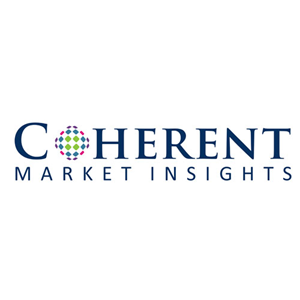The global macrophage markers market is estimated to be valued at US$ 256.2 million in 2023, and it is expected to exhibit a Compound Annual Growth Rate (CAGR) of 6.5% during the forecast period spanning from 2022 to 2030, according to Coherent Market Insights.
Macrophage markers play a pivotal role in research and diagnostics, particularly in the fields of cancer biology, immunology, and infectious diseases. They are essential tools widely used for understanding and studying macrophages. The market for macrophage markers is experiencing robust growth, primarily driven by the increasing research activities in oncology, immunology, and infectious diseases. Furthermore, the growing prevalence of chronic diseases, including autoimmune disorders and cancers, is a significant driver behind the expansion of the macrophage markers market.
Read also: CDC acknowledges Nigeria’s role in strengthening health Innovation
Market Drivers
One of the key drivers of the macrophage markers market is the increasing prevalence of chronic diseases, particularly cancer. Macrophage markers play a critical role in various stages of these diseases, driving the demand for these markers. The World Health Organization (WHO) reports that cancer is a leading cause of death globally, with nearly 10 million deaths attributed to it in 2020. The most common cancers in 2020 included breast cancer, lung cancer, prostate cancer, and stomach cancer.
The rise in research activities within the field of immunology, prompted by the need to understand the role of macrophages in various diseases such as autoimmune disorders, cancers, and infectious diseases, is fueling the macrophage markers market’s growth. Macrophages are pivotal in enhancing research efficacy, making them essential for ongoing research and development activities within the field of immunology.
Despite the growth potential of the macrophage markers market, there are certain hindrances such as regulatory hurdles and high costs. The production and marketing of high-quality macrophage markers must comply with regulatory guidelines, making it a complex and time-consuming process. Additionally, the high cost of these markers can be a challenge for smaller research institutions and laboratories.
Advent of Novel Macrophage Markers
Market players are introducing novel macrophage markers to meet the growing demand. There is also an opportunity for markers in diagnostic applications, supporting early disease diagnosis and monitoring, such as for inflammatory disorders, cancer, and infectious diseases. Advancements in imaging technology further contribute to potential growth in the market.
A recent trend in the global macrophage markers market is the growing shift toward personalised approaches. Macrophage markers are being used to identify specific macrophage populations and their functional characteristics, providing valuable information for personalised treatment decisions. This trend is driven by the increasing adoption of personalised medicine, which fuels the demand for macrophage markers.
Market Key Developments
Key players in the macrophage markers market are constantly innovating and introducing new markers to cater to the increasing demand. For example, BD Biosciences offers the BD FACS Canto Human Macrophage Panel, which includes 12 antibodies targeting specific macrophage markers, enabling researchers to profile and identify different types of macrophages in a single experiment. Additionally, Bio-Techne Corporation, in partnership with Cell Signaling Technology (CST), announced the addition of simple western validation to CST antibodies, making it easier for researchers in various disciplines to study important molecular signaling pathways on a validated platform.
Market Segmentation
The global macrophage markers market report covers key segments, including Marker Type, Application, Disease Area, End User, and Region:
Marker Type: CD68, CD163, CD206, CD14, CD11b, CD64, CD11c, and others.
Application: Immunohistochemistry (IHC), Flow Cytometry, Immunofluorescence (IF), Polymerase Chain Reaction (PCR), and others.
Disease Area: Oncology, Infectious Diseases, Autoimmune Diseases, Cardiovascular Diseases, Neurological Disorders, and others.
End User: Research Institutes and Academic Centers, Pharmaceutical and Biotechnology Companies, Clinical Laboratories, and others.
Region: North America, Europe, Asia Pacific, Latin America, Middle East & Africa.
Key Market Players
Key players operating in the global macrophage markers market include Abcam plc, Bio-Rad Laboratories, Inc., Cell Signaling Technology, Inc., BD Biosciences, Thermo Fisher Scientific, Inc., Agilent Technologies, Inc., BioLegend, Inc., Merck KGaA, Novus Biologicals, LLC, R&D Systems, Inc. (a Bio-Techne brand), Santa Cruz Biotechnology, Inc., Beckman Coulter, Inc., Miltenyi Biotec GmbH, GeneTex, Inc., MBL International Corporation.
The global macrophage markers market is poised for growth, driven by an increasing focus on research and diagnostics in areas such as cancer biology, immunology, and infectious diseases. Despite some challenges, such as regulatory hurdles and high costs, the market is expected to thrive, with opportunities arising from the advent of novel macrophage markers and the shift towards personalised approaches in medical treatment decisions. The development of innovative markers and continued research in this field will further shape the future of the macrophage markers market.
